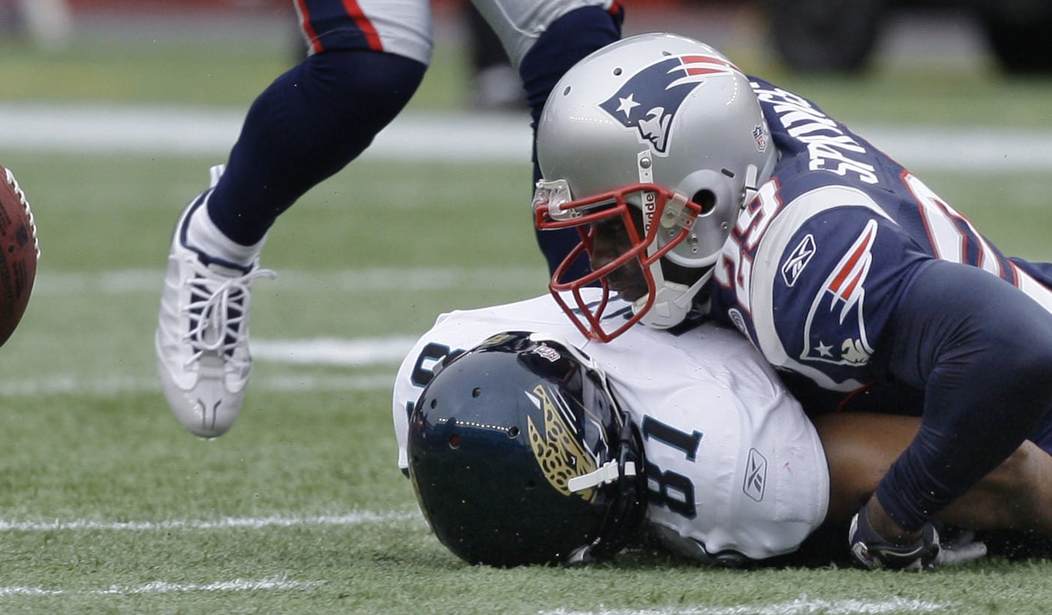WASHINGTON – Violent face-offs like the recent Steelers-Bengals football game have raised the NFL’s awareness of the seriousness of concussions, traumatic brain injuries and other major impacts, former player Shawn Springs told Congress on Wednesday.
“Football is a beautiful sport when played properly within the confines of the rules. Even when played correctly, there are some inherent dangers that are unavoidable,” Springs said in his opening remarks before the House Science Subcommittee on Research and Technology.
The former cornerback, who spent his 13-year career with the Seattle Seahawks, Washington Redskins and New England Patriots, added later: “We saw what happened a few weeks back when … (Steelers linebacker) Ryan Shazier was hit in the Steelers-Cincinnati game, and I think every player is aware of the seriousness of the sport and injuries, and I think the NFL is also doing its best and trying to educate the players, as well.”
The Steelers announced this week that Shazier will miss the rest of the season after undergoing spinal stabilization surgery hours after a tumultuous game on Monday Night Football in week 13. Shazier was injured when he led with the crown of his helmet while making a tackle on a Bengals players crossing the middle after a catch. Shazier went limp on contact and appeared unable to move his lower body. He was taken off the field on a stretcher and taken to the hospital.
The game included several other brutal hits, and following the 23-20 Steelers win players from both teams were suspended for unsportsmanlike conduct. Steelers wide receiver JuJu Smith-Schuster and Bengals safety George Iloka were each suspended one game. Smith-Schuster in the fourth quarter blindsided Bengals linebacker Vontaze Burfict, who is infamous for dirty play, and then stood over him in celebration. In an apparent payback hit, Iloka laid a helmet-to-helmet hit on Steelers wide receiver Antonio Brown in the end zone, while he scored a game-tying touchdown.
Wednesday’s hearing was held to discuss how federal resources can best be deployed to address head trauma issues, for the sake of competitive sports and for the military. Rep. Roger Marshall (R-Kansas) noted that concussion protocol at the high school level in his state has been raised to a higher standard in recent years. Great Bend High School, for example, has a “super concussion protocol,” he said.
“There’s no more pressure from the coaches that, ‘Hey, your kid’s the star running back,’” Marshall said. “‘He’s got to get back in there for this big game.’ That stigma’s gone away.”
Springs, who was born in Virginia and attended Springbrook High School in Maryland, now serves as chief executive officer of Windpact, a Northern Virginia company that specializes in protective gear. He told Marshall that the awareness at the youth level has risen as mothers, and the community as a whole, have a better understanding of the seriousness of the issue.
“When I came up, my generation, they would tell you to sniff a little smelling salt and go back in,” said Springs, who suffered concussions throughout his career. “Now I think the teachers, parents, coaches, everyone who’s involved with the youth or kids playing is aware of the seriousness of traumatic brain injury and concussions.”
In his opening testimony, Springs noted that the growing negative attention surrounding the sport has resulted in lower participation at the youth level.
“I feel strongly that this is the opposite reaction that is needed,” he said. “Team sports and recreational activities are invaluable in what they provide to our communities and our children.”
Last month, Boston University released findings showing that former New England Patriots tight end Aaron Hernandez, a convicted murderer who committed suicide in prison at the age of 27, “suffered the most severe case of chronic traumatic encephalopathy ever discovered in a person his age.” The findings raised questions about the impact of CTE on a person’s decision-making and overall mental state.
The NFL is currently collaborating with the National Institute of Science & Technology and others on a four-year, $60 million partnership started in 2013 to better understand traumatic brain injury.









Join the conversation as a VIP Member